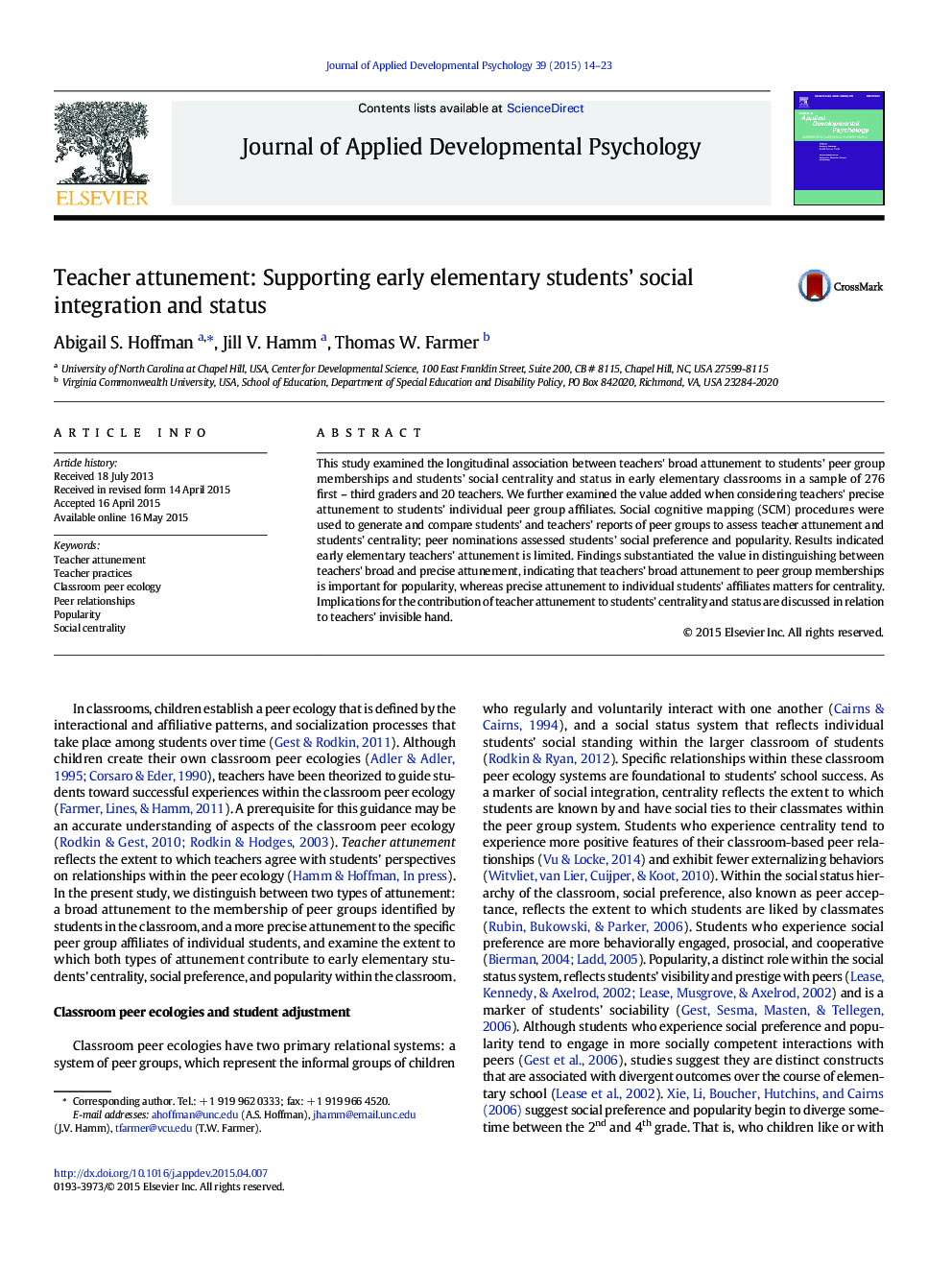| Article ID | Journal | Published Year | Pages | File Type |
|---|---|---|---|---|
| 359646 | Journal of Applied Developmental Psychology | 2015 | 10 Pages |
•Teachers’ broad attunement to peer group memberships was modest.•Teachers’ precise attunement was even more limited.•Students were more popular when teachers’ had broad attunement in the fall.•Students were more integrated when teachers had a more precise attunement in fall.
This study examined the longitudinal association between teachers' broad attunement to students’ peer group memberships and students’ social centrality and status in early elementary classrooms in a sample of 276 first – third graders and 20 teachers. We further examined the value added when considering teachers' precise attunement to students’ individual peer group affiliates. Social cognitive mapping (SCM) procedures were used to generate and compare students’ and teachers’ reports of peer groups to assess teacher attunement and students’ centrality; peer nominations assessed students’ social preference and popularity. Results indicated early elementary teachers’ attunement is limited. Findings substantiated the value in distinguishing between teachers' broad and precise attunement, indicating that teachers’ broad attunement to peer group memberships is important for popularity, whereas precise attunement to individual students' affiliates matters for centrality. Implications for the contribution of teacher attunement to students’ centrality and status are discussed in relation to teachers’ invisible hand.
